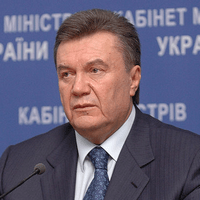There is little doubt that as president of Ukraine, Viktor Yanukovych will decisively shift the country's geopolitical posture, with Kiev once again moving closer to Moscow after its pro-Western and pro-EU turn of 2005. The potential consequences on the EU's energy future are serious, as 80 percent of Russian natural gas exports to Europe transit through Ukrainian territory. The country has been in repeated price disputes with the Russian state-owned gas monopoly, Gazprom, resulting in interruptions of deliveries to the Ukrainian market in January 2006 and 2009, with supplies to Europe affected both times. Mediation on the part of the EU and Western European governments prevented such episodes from deteriorating on other occasions, most notably in January 2010. Hence, it stands to reason that a reorientation in Ukraine's politics would trigger a parallel reorientation in European energy policies.
A first sign of the direction the new European strategy will take might have come on March 4, when the EU assigned funding to priority projects in the gas and electricity sectors. The largest appropriation, €200 million, went to the Nabucco pipeline, whose declared objectives have always been the creation of ties with the Caucasus and Central Asia, and the reduction of European dependence on Russian gas. Although not huge in monetary terms, this measure is particularly relevant since the EU imprimatur may finally convince investors that the pipeline will be built and that they can safely pour their money into the venture.
However, the difficulties of the Nabucco consortium in finding upstream supplies led some high-profile European officials to foreshadow a deal with Gazprom to fill the pipeline. Meanwhile, the governments of Germany, Italy and (less overtly) France actively support Nord Stream and South Stream -- both projects that would bypass Ukraine but would actually increase Europe's dependence on Russian supplies. Finally, given the continuous delays plaguing Nabucco, as well as recent tensions between Turkey and Azerbaijan, some observers increasingly see White Stream -- a trans-Black Sea pipeline projected to run directly from Azerbaijan to Romania, and then on to Ukraine for transit -- as an alternate solution, although it has yet to receive official backing.

